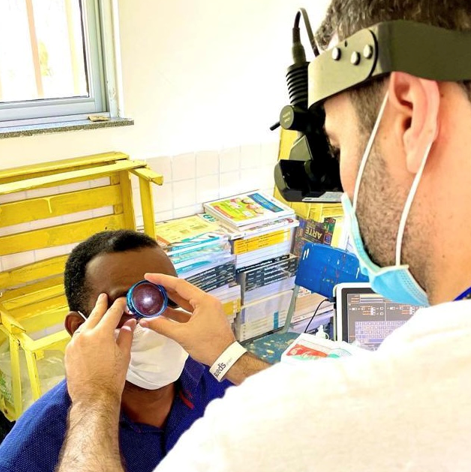This project is supported by the L'OCCITANE Foundation.
Context
According to the World Bank report “Indigenous Latin America in the 21st Century”, poverty affects 43% of the indigenous population of Latin America, more than double the proportion of the non-indigenous population. In addition, 24% of indigenous people live in extreme poverty, a percentage 2.7 times higher than that of the rest of the population. Despite some progress in the areas of access to health, education and infrastructure, as well as political participation, inequalities have not been reduced. In Brazil alone, the difference in poverty between the two groups increased by 99% between the early and late 2000s. Currently, the indigenous population constitutes 14% of the poor and 17% of the extremely poor in Latin America.
Supported Project
From 2023 to 2026, the L'OCCITANE Foundation supports the Instituto Suel Abujamra and its project which aims to monitor and identify visually impaired patients using portable equipment, to evaluate images using artificial intelligence software and to the help of telemedicine, as well as providing adequate training on screening for visual impairment and blindness through the acuity test, with health coordinators from the indigenous area of Brazil assessing the study population to measure the effectiveness of the program.
The Brazilian indigenous population hardly detects cataracts, retinal detachment, diabetic retinopathy and glaucoma without NGOs working in indigenous territories. The integration between artificial intelligence algorithms and ocular images has been used for the early identification of these pathologies. Scientific studies show greater diagnostic accuracy for this method. Our overall goals are to implement the use of wearable and tele-ophthalmology equipment with the use of artificial intelligence to more accurately identify who needs treatment. Telerefraction services will also be included for patients requiring donated glasses.
Some Figures
Budget 591,000 euros
Goal 25,000 beneficiaries
Goal 850 new actors trained
Result year 1 8,750 beneficiaries
Result year 1 304 actors trained
